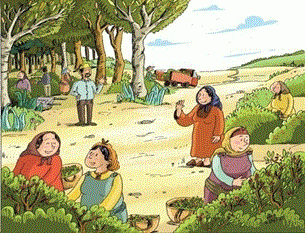
Objective:
In Tunisia all forest areas are public: in order to use forest products, producers and firms should go through a tendering system subject to Article 18 of the Tunisian forestry code, organized each year by the Tunisian Forestry authority. Small firms and the local populations are facing many difficulties to use available resources legally. The DGF is promoting a new form of sustainable management for forest resources: Concluding contracts between the organized local community and the administration to improve their livelihood and to protect forestal areas.
Context:
Tunisia has significant forest resources, that are subject to degradation, human pressure, and climate change factors. Meanwhile, the forest population has considerable local knowledge to valorize available forest resources, especially non-wood forest products. However, the local population is prevented from using forest resources without paying access rights. This new contract comes out to dismantle these difficulties and to facilitate access to the local population living within the forest areas. Policymakers implemented a contract of co-management to ensure a mutual benefit between the DGF and the forest population. The forest population should be organized in agricultural development groups ADG. This new contract empowers the forest population and provides sustainable forest management. Co-management contract can be defined as a commitment of two partners (DGF & ADGs) by signing this "legal document", to protect forest areas and to improve local population revenues at the same time
Contacts:
Ibtissem Taghouti, ibtissem.taghouti@gmail.com, http://www.inrgref.agrinet.tn/
Hamed Daly-Hassen, hamed.daly1@gmail.com, http://www.inrgref.agrinet.tn/
Further information:
Taghouti, Ibtissem, and Hamed Daly-Hassen. "Essential oils value chain in Tunisian forests: Conflicts between inclusiveness and marketing performance." Arabian Journal of Medicinal and Aromatic Plants 4.2: 15-41.